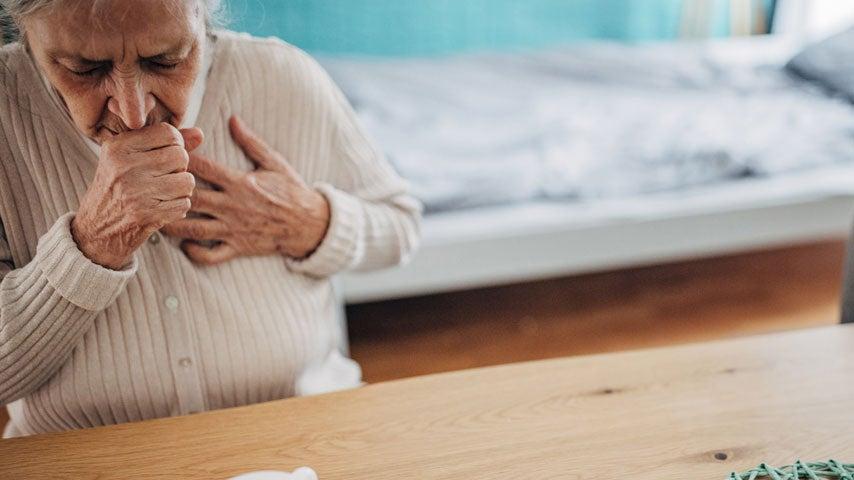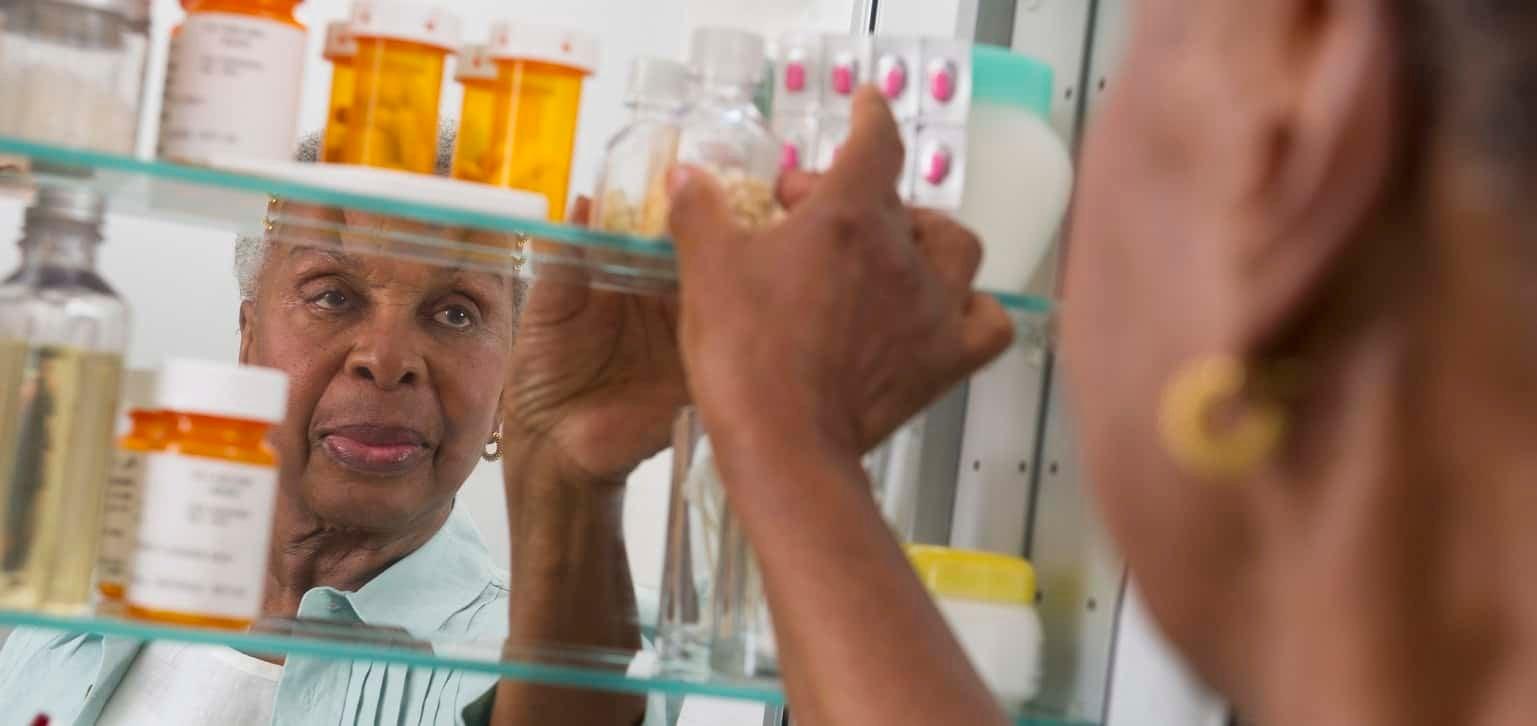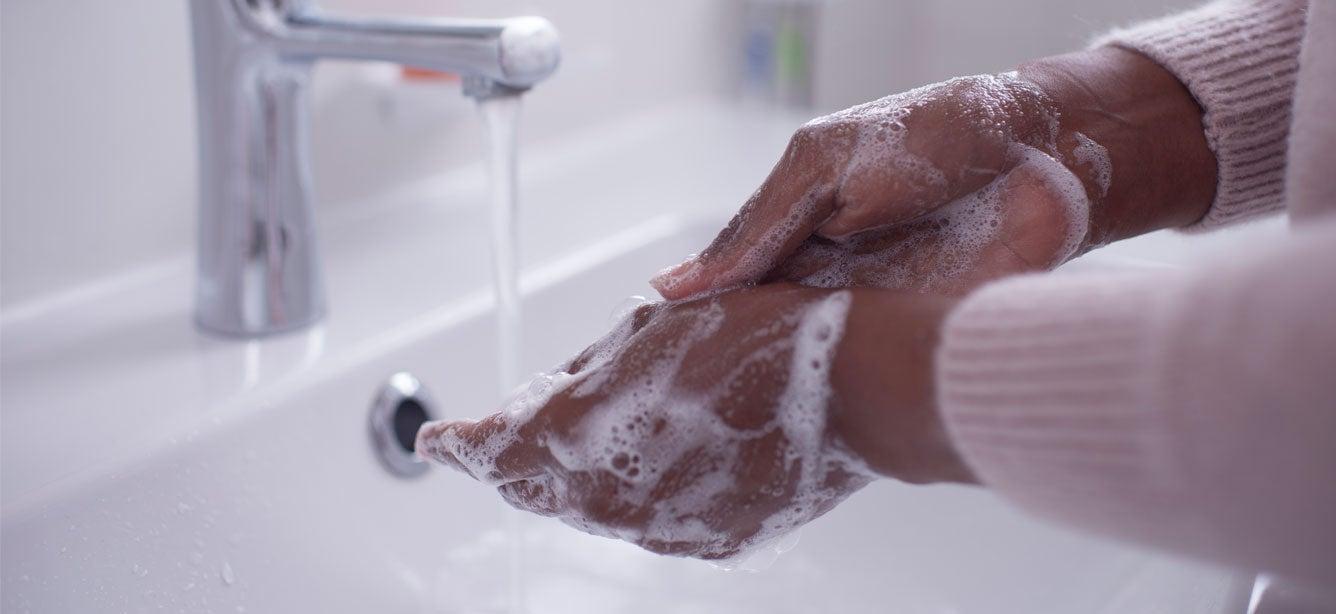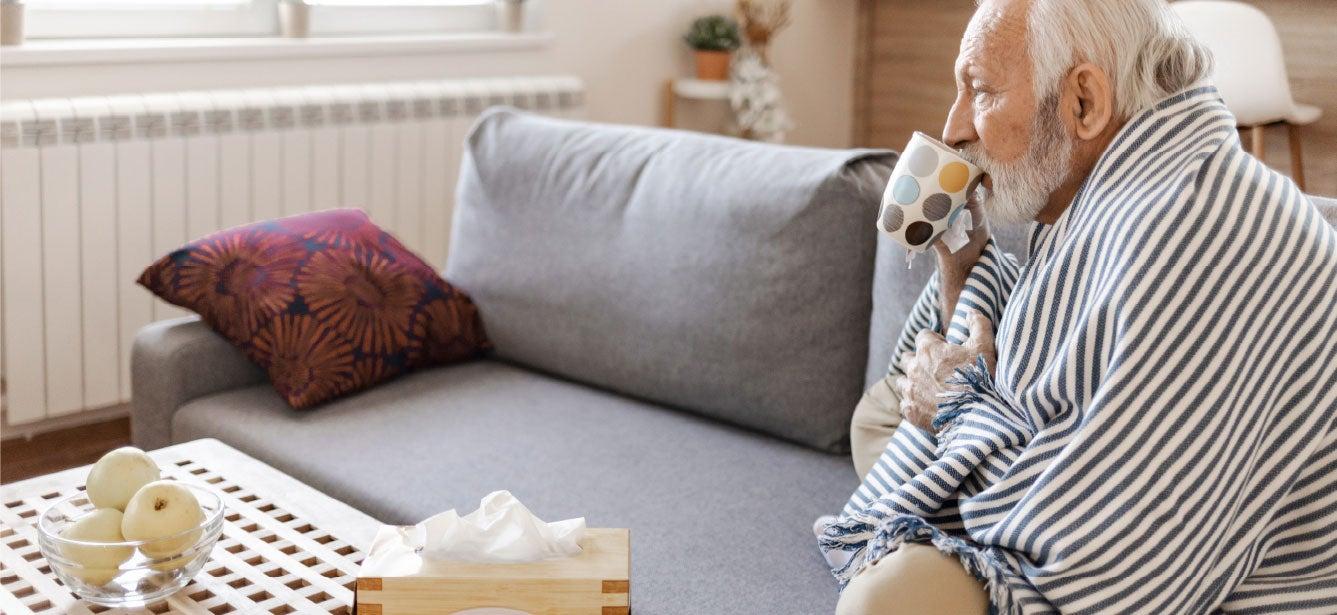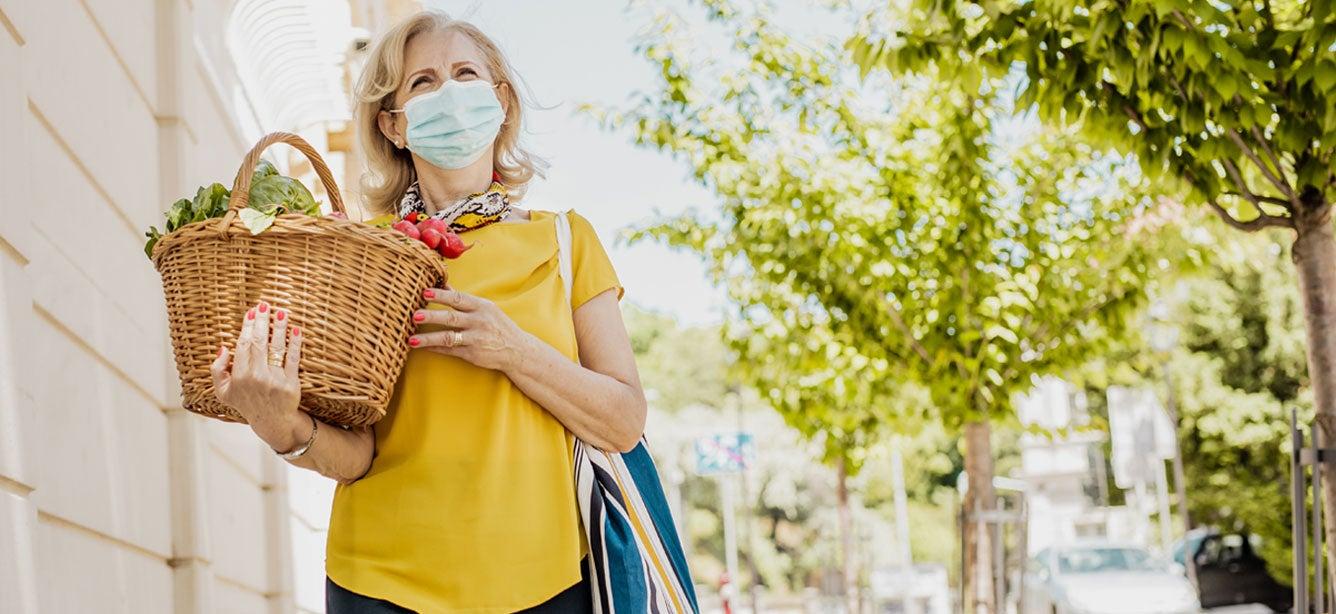
Although the pandemic is well in our rearview mirror, the fact is COVID-19 has not gone away. People age 65+ are still at high risk for complications from COVID and other respiratory viruses. That’s why it’s essential to take extra precautions if you’re older or immunocompromised.
Here are five things to keep in mind during winter cold and flu season and when COVID cases are high in your community:
1. Take care of your overall health
Maintaining good head-to-toe health strengthens our body’s ability to fight infections like COVID. These healthy habits are a great place to start:
- Keep chronic conditions under control: According to a recent study, 93% of adults age 65 and older have at least one chronic condition, while 79% have two or more.1 The Centers for Disease Control and Prevention (CDC) states that people with certain chronic conditions like obesity, heart disease, and diabetes are more likely to get severely ill from COVID.
If you have a chronic condition, make sure you’re staying on top of your care plan, taking any medications as prescribed, and maintaining regular follow-up visits with your doctor. Keeping your chronic health issues well-controlled can help reduce your risk of COVID complications. - Maintain regular wellness visits: Life gets busy, and it can be tempting to put off routine check-ups with your doctor. But don’t skip your annual visit! These appointments give you and your health care provider a chance to monitor your chronic conditions, update any prescriptions, and ensure your vaccinations—like the latest COVID and flu shots—are current. They also allow for early detection of new health issues that could increase your vulnerability to severe illness from COVID. Tip: If you have Medicare, your Annual Wellness Visit is 100% covered and can be scheduled every 12 months.
- Adopt healthy lifestyle behaviors: This includes eating wholesome, healthy foods and avoiding too much saturated fat, sugar, and salt. Take proactive steps to manage stress, get enough sleep, and try to stay physically active. Regular physical activity benefits both your mind and body. Here are 5 tips for maintaining your exercise motivation.
- Do not delay emergency care: This is especially true if you’re experiencing shortness of breath, chest pain, or discomfort in your arms, back, or neck. While your first reaction may be to wait and see if symptoms subside, they could be signs of a heart attack or stroke. Acting fast can save your life.
2. Get Vaccinated Even If You Already Had COVID-19
The updated COVID vaccine continues to be our best protection against serious illness, hospitalization, and death—even if you’ve had COVID in the past. A recent study found that between October 2024 and March 2025, most adults hospitalized for COVID had received no COVID vaccine since July 2023.2 Getting vaccinated may help reduce the risk of long COVID, too.
What are the COVID vaccine guidelines for 2025-2026? On Sept. 19, 2025, the CDC Advisory Committee on Immunization Practices (ACIP) voted to change COVID vaccine guidance. Now, for anyone age 6 months and older, getting the vaccine is considered a personal decision to be made with a health care provider.
At NCOA, we believe in the power of evidence-based vaccines to keep older adults healthy and safe. Immunizations help protect you from serious complications from COVID and other respiratory illnesses—while also helping to protect your family and community. Getting vaccinated is especially vital if you’re 65+ or you have a chronic health condition like diabetes or heart disease.
We encourage you to talk to your health care team about your personal health risks and to get your COVID, flu, and RSV shots. Vaccines not only save lives; they help older Americans maintain their independence and quality of life.
3. Wear a Mask to Protect Yourself and Others
COVID spreads mainly through tiny droplets (aerosols) and particles released when an infected person talks, breathes, coughs, or sneezes. These droplets can land in the mouths, noses, or eyes of people nearby, or be inhaled into the lungs. If you’re infected with COVID, a mask can help reduce the spread by blocking what you breathe in and out. And when someone else who is sick wears a mask, it lowers the chance of them spreading their illness to you.
According to CDC, masking offers another layer of protection on top of COVID vaccination and other preventive measures. It’s a good idea to mask up when you’re in a crowded space, when respiratory illnesses are widespread in your community, or if you or someone close to you has been exposed, is sick, or is recovering from illness. Masks can provide added peace of mind if you are immunocompromised or more likely to get very sick from COVID.
Choose the most protective mask that fits well and that you will wear consistently. Snug-fitting N95 or KN95 types are good bets.
4. Use common-sense actions to stay safe
When COVID, flu, and other illnesses are spreading like wildfire in your community, take practical steps to protect yourself and the people around you:
- Clean surfaces often: You should regularly clean frequently touched surfaces in your home such as light switches or doorknobs.
- Take steps to breathe cleaner air: Respiratory viruses like COVID spread more readily in crowded, poorly ventilated spaces. If it’s safe to do so, open your doors and windows as much as you can to bring in fresh, outdoor air. Spend time doing activities outside when the weather permits. Consider buying a portable high-efficiency particulate air (HEPA) cleaner to purify the spaces where you spend the most time.
- Wash your hands often: Lather them for at least 20 seconds with soap and water. If soap and water is not available, use hand sanitizer that contains at least 60% alcohol.
5. Ask for help if you need it
We all require a little help and guidance sometimes—so make it a point to reach out to others:
- If you have COVID and live alone, ask the people you know for support. They can help by bringing you food and water and picking up medications. Note: Caregivers/visitors should wear a well-fitting mask and wash their hands frequently to protect themselves and prevent spread of the virus.
- Need help locating a vaccination site or receiving a vaccine? In addition to talking to your doctor, you can dial 211 or reach out to organizations like those below that support older adults and people with disabilities:
- The Aging Network: 1-800-677-1116
- Eldercare Locator: search by ZIP code at eldercare.acl.gov
- Disability Information and Access Line (DIAL): 1-888-677-1199 or emailing DIAL@n4a.org
- Medicare hotline: 1-800-633-4227 (TTY 1-877-486-2048)
- If you’re having trouble affording food, utilities, or medication, use our BenefitsCheckUp tool to explore benefits programs that can help you stay healthy and independent.
To learn more about protecting yourself from COVID, visit our COVID-19 Safety and Protection resource library for older adults.
Sources
1. Kathleen B. Watson, PhD, et al. Trends in Mulitple Chronic Conditions Among US Adults, By Life Stage, Behavioral Risk Factor Surveillance System, 2013-2023. Preventing Chronic Disease. April 17, 2025. Found on the internet at https://www.cdc.gov/pcd/issues/2025/24_0539.htm
2. CDC National Center for Immunization and Respiratory Diseases. Current Epidemiology of COVID-19. June 25, 2025. Found on the internet at https://www.cdc.gov/acip/downloads/slides-2025-06-25-26/02-MacNeil-COVID-508.pdf
